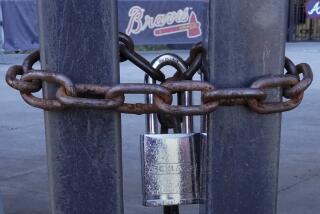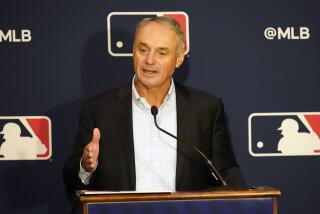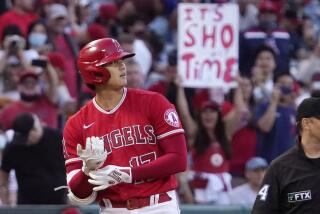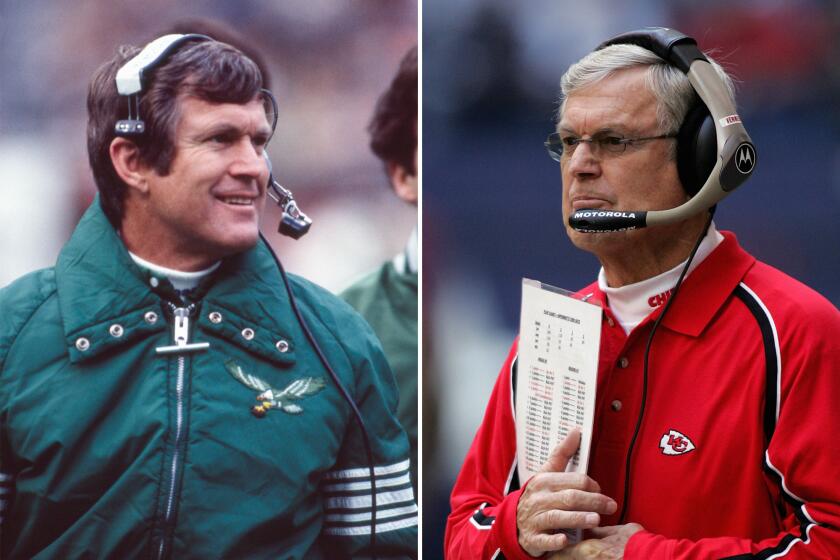NHL cancels regular-season games through Nov. 1
- Share via
The NHL on Friday announced the cancellation of the regular-season schedule through Nov. 1, running the total of missed games league-wide to 135.
The league, which locked players out on Sept. 15, had previously canceled games from Oct. 11 through Oct. 24, the first 82 games on the schedule.
The timing of the announcement and the cutoff of Nov. 1 are easily explained.
The announcement of additional cancellations follows an acrimonious day in which the NHL Players’ Assn. turned down an offer from the league and was, in turn, rebuffed when it presented three alternatives to the league’s plan. Canceling additional games guarantees players will miss a second paycheck — they would have received the first on Oct. 15 and the second on Oct. 29 — and puts more pressure on the NHLPA to accept the league’s deal.
Stopping the cancellations at Nov. 1 allows the NHL to leave its last offer on the table and at least publicly maintain that a full season remains possible. The NHL made that offer contingent on a new collective bargaining agreement being reached by Oct. 25 and the season starting on Nov. 2.
From a practical viewpoint, the chance to play a full season is probably gone but it could possibly still be squeezed in if an agreement were to be reached in a day or two.
NHL Deputy Commissioner Bill Daly confirmed that the league’s offer is still on the table. However, he said the sides had not talked on Friday and that no negotiations had been scheduled.
The union’s rejection of the NHL’s offer and the NHL’s angry response to the union’s counterproposals overshadowed one key issue: Both sides have essentially agreed on a 50-50 split of hockey-related revenues. They differ on how to get there, with the NHL demanding an immediate drop from last season’s 57% share to 50% and the union suggesting a more gradual drop. The NHL is also promising to eventually honor the full value of players’ contracts, but players contend that those deferred payments would only come out of future salaries.
The sides also have significant differences in other areas, such as the NHL’s proposal to change the terms of unrestricted and restricted free agency, so a solution might not be as simple as figuring out how to go from 57% to 50% while preserving face and some dignity.
ALSO:
Discussion: How will USC and UCLA end their seasons?
Watch pro wrestler Shawn Daivari choke out an unruly passenger
Ronaldo becomes the first athlete with 50 million likes on Facebook
More to Read
Go beyond the scoreboard
Get the latest on L.A.'s teams in the daily Sports Report newsletter.
You may occasionally receive promotional content from the Los Angeles Times.











